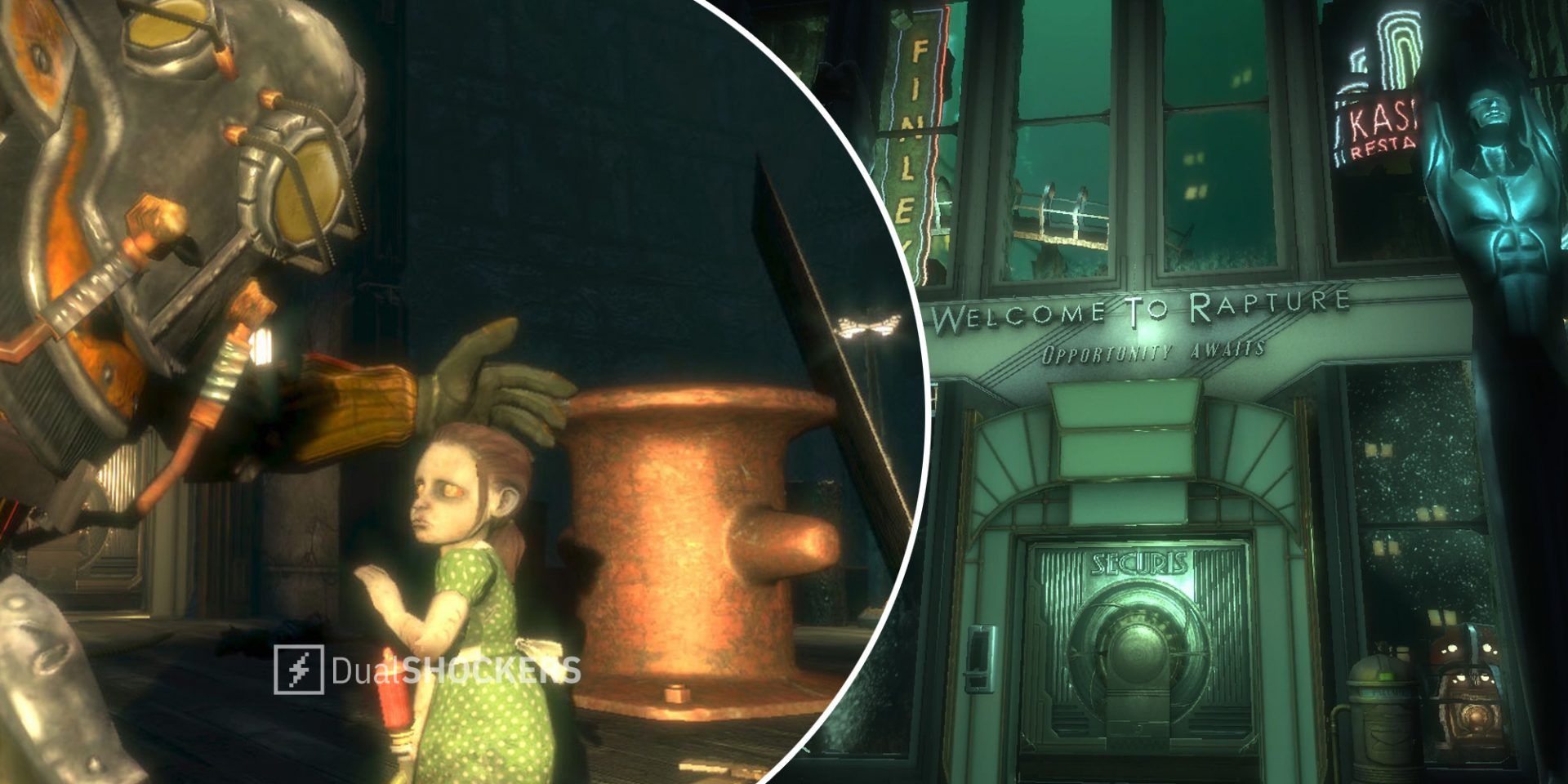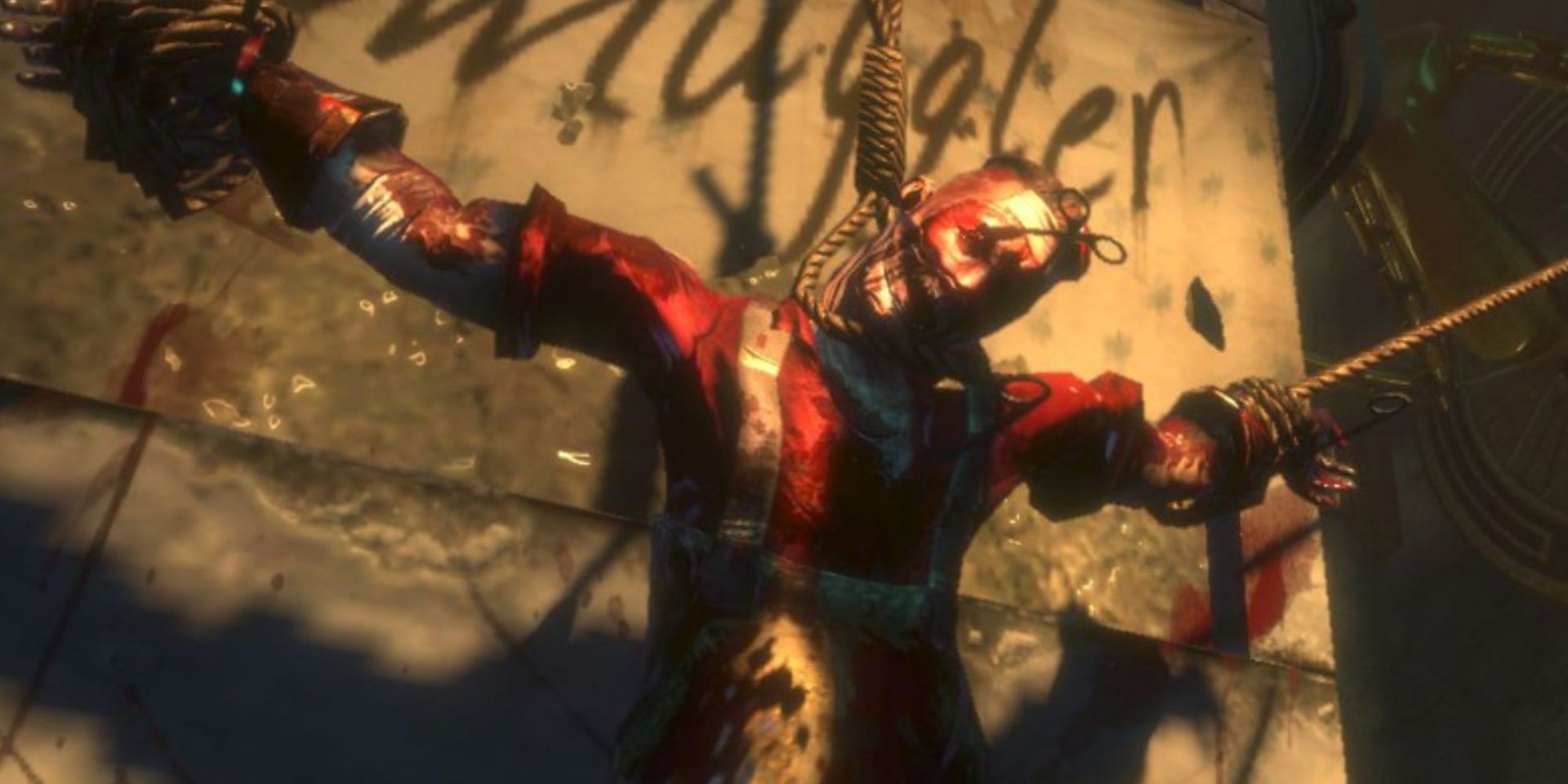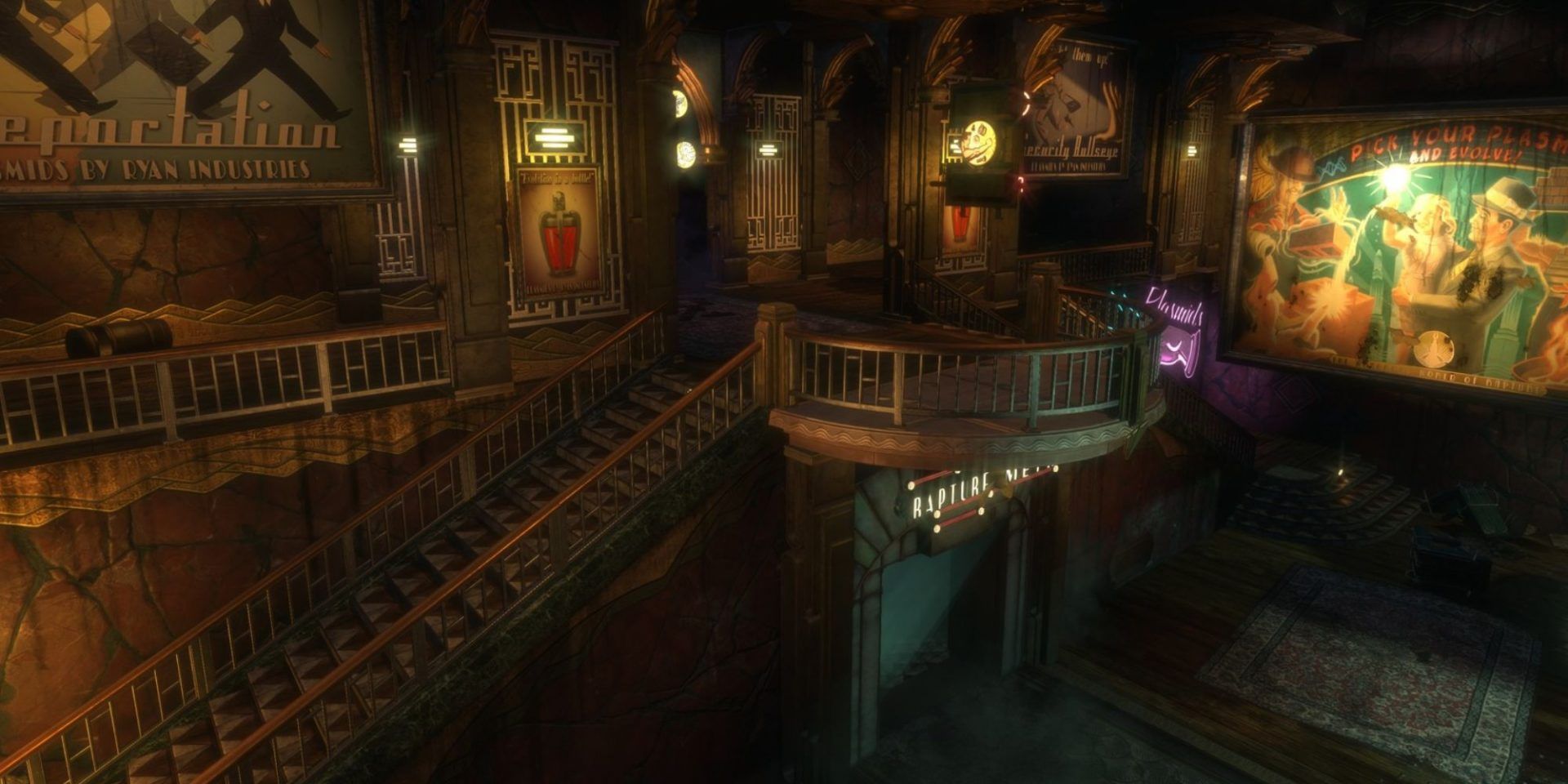“A city where the artist would not fear the censor. Where the scientist would not be bound by petty morality. Where the great would not be constrained by the small.” Andrew Ryan’s sub-aquatic Randian paradise was first introduced with the release of BioShock back in 2007. Since then, the retrofuturistic corridors of Rapture have firmly embedded themselves in the psyche of those lucky enough to have travelled them. There have been countless depictions of dystopia in gaming from both before and after BioShock, but very few immerse the player as thoroughly as Rapture does.
Originally pitched as a laissez-faire utopia - by the time protagonist Jack arrives via Bathysphere, Rapture has devolved considerably. Rapture was intended by Ryan to be a collective of free-minded individuals, but with none of the community spirit that would designate the city as a commune - a commune would be the antithesis of Ryan’s creation. Rapture instead encouraged an extreme sense of individualism while upholding property rights.
These dubious ideals coupled with an unregulated hypercapitalist economic system caused the swift collapse of Rapture, turning Ryan’s project from a heavily stratified but flourishing city into a lawless labyrinth of insanity and violence. The events of BioShock were the natural conclusion to Ryan’s dream, unbeknownst to him.
This is the beauty of BioShock’s dystopia, it combines the fantastical nature of an underwater city with the very real shortcomings of human nature and the worst impulses of capitalist economics. It’s a biting commentary - even when humanity is presented with a perfect sandbox, it will be monetised to the point of destruction. Rapture is a real dystopia, it’s not simple misfortune that brought the city to its knees but rather a clear cause and effect during the events immediately preceding BioShock.
BioShock’s dystopia acts in contrast to those of The Last of Us or The Walking Dead where society has collapsed due to unforeseen exterior forces. While the former highlights the positive themes of endurance and the survival of generosity, BioShock does the opposite. While there’s a chance that Jack can go on and live a happy life depending on player choices, there is no underlying message of hope present in BioShock. Rapture was ill-conceived and it met a terrible end as a result. This level of hopelessness represents a more realistic brand of dystopia, matched only by the rat-infested streets of Dishonored’s Dunwall.
BioShock's mastery of dystopian immersion continues to hold its own when further contrasted against conventionally titanic iterations of the concept. Take Half-Life, which sees humanity subjugated by an alien faction known as the Combine - or even Horizon Zero Dawn, which features a primitive version of humanity living in a world with very advanced artificial intelligence. These two worlds can be classified as dystopian, sure, but neither captures the grim feeling of hopelessness that Rapture instills in its denizens. Half-Life’s troubling premise is counteracted by how competent of a character Gordon Freeman is, and Horizon’s beautiful environments inspire far more than they depress.
Presentation and worldbuilding are key in immersing a player into a world, and the gradual introduction of Rapture in BioShock is expert in this regard. Jack is entering Rapture with no prior knowledge of the city, and the game takes wonderfully emphatic means of demonstrating this. For example, you have absolutely no idea what a splicer actually is when you first see one beyond the glass door of the bathysphere. But if the hooks-for-hands didn't tip you off, seeing it absolutely mutilate an unarmed man clarifies that they're bad news, just as the door swinging open shortly afterward clarifies your immense mortality in this fascinatingly dangerous new locale.
This type of introduction is conducive to greater immersion, and it cements the player being “on the ground floor” of the dystopia, so to speak. You’re learning about Rapture’s downfall while experiencing it, and the cast of characters Jack meets along the way further elaborate on why the once-great city is on its knees both directly and indirectly. Dr. Steinman may not straightforwardly tell you why he’s placing mutilated bodies around the Medical Pavillion, but his audio diaries and the game’s environmental storytelling make perfectly clear what happens to those who abuse splicing.
After setting this tone and grounding you in its dystopia, the game has a way of consistently reasserting your place within it to maintain that degree of immersion. It makes you feel small, like you’re a part of Rapture that's never going to prove definitive. From the first Big Daddy tussle, it's made abundantly clear that you're nowhere near the top of Rapture's food chain. And the biggest narrative turn in the game twists that screw perfectly. Realizing that following Atlas' directives has essentially cast Jack as a mere pawn in the ongoing civil war between Frank Fontaine and Andrew Ryan contextualizes your degree of agency in every struggle leading up to that point as deliciously futile.
While he eventually does realize a key role in the ultimate fate of Rapture, Jack begins as another straggler in the deteriorating corridors of the collapsed city - vulnerable, endlessly manipulated, and struggling at the best of times. This is dystopia done right. In order to truly feel the hopelessness of a situation, it needs to be experienced fully. There aren’t many games, nevermind action shooters, that can boast the kind of immersive storytelling that BioShock can. Coupled with the very real political disillusionment that underpinned Rapture’s creation, BioShock depicts dystopia the right way - hopeless, greedy, dark, and without redemption.



